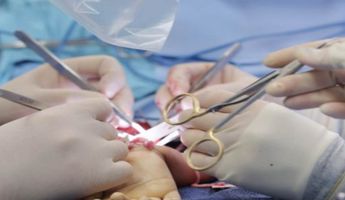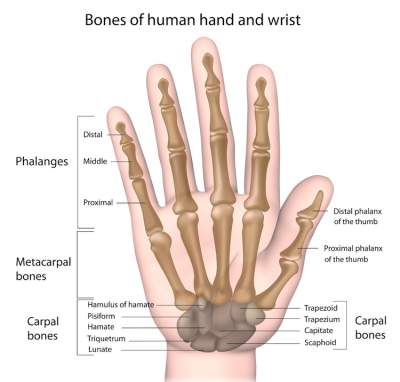Hand Surgery in Belgium
Search and Compare the Best Clinics and Doctors at the Lowest Prices for Hand Surgery in Belgium

Find the best clinics for Hand Surgery in Belgium
No clinics available
Tunisia offers the best prices Worldwide
Price: $ 964

- Home
- Belgium
WHY US?
At Medijump, we're making medical easy. You can search, compare, discuss, and book your medical all in one place. We open the door to the best medical providers worldwide, saving you time and energy along the way, and it's all for FREE, no hidden fees, and no price markups guaranteed. So what are you waiting for?

Free

Best Price

Widest Selection

Risk-Free
What you need to know about Hand Surgery in Belgium
What Does the Procedure Involve?
There are several different types of surgery that can be carried out on the hand, depending on the cause of the problem, such as injury, disease, or congenital defect. Some of the main types of hand surgery are tendon repair, nerve repairs, closed reduction and fixation, joint replacement (arthroplasty), as well as surgical drainage and/or debridement. Most of these surgeries are performed under general anesthetic, but some can be done under local anesthetic.
How Long Should I Stay in Belgium for a Hand Surgery Procedure?
Depending on which type of surgery you underwent, you may need to stay in the hospital overnight. The recommended length of stay is 7 to 10 days at Belgium, but you should check with your surgeon when you can fly home. During your stay, your surgeon may schedule follow-up checkups where your condition is monitored and your stitches are removed.
What's the Recovery Time for Hand Surgery Procedures in Belgium?
In general, you should be able to return to work within a week if your job does not require extensive use of your hands, but if your job is physically demanding and you need to use your hands a lot, it can take as long as 3 to 6 months before you can resume your job. The total recovery period may take around 6 months, but this depends on which type of surgery you underwent.
What sort of Aftercare is Required for Hand Surgery Procedures in Belgium?
After the surgery, you may need to attend a physical therapy program to strengthen your hand and bring back your range of motion using isometric exercises. Remember to begin your normal routine gradually and take it easy on your affected hand to prevent any complications. You may need to schedule an appointment with your local doctor to check your healing progress.
What's the Success Rate of Hand Surgery Procedures in Belgium?
Hand surgery is effective and highly successful. However, just like most surgeries, it carries the risk of bleeding and infection. Other side effects and risks include incomplete healing, blood clots, and loss of feeling or movement of the fingers or hand.
Are there Alternatives to Hand Surgery Procedures in Belgium?
Surgery is only an option if other forms of treatment are unsuccessful. If you do not want to undergo surgery, you can take non-steroidal anti-inflammatory medications or cortisone injections and attend physical therapy.
What Should You Expect Before and After the Procedure
Before surgery, your range of motion, mobility, and productivity may be limited. After hand surgery, you should be able to do normal things again and to perform your activities efficiently.
Whilst the information presented here has been accurately sourced and verified by a medical professional for its accuracy, it is still advised to consult with your doctor before pursuing a medical treatment at one of the listed medical providers
No Time?
Tell us what you're looking for and we'll reachout to the top clinics all at once
Enquire Now

Popular Procedures in Belgium
Prices Start From $553

Prices Start From $218

Prices Start From $218

Prices Start From $2,050

Recommended Medical Centers in Belgium for procedures similar to Hand Surgery

- Interpreter services
- Translation service
- Religious facilities
- Medical records transfer
- Medical travel insurance
- Health insurance coordination
- TV in the room
- Safe in the room
- Phone in the room
- Private rooms for patients available

- Interpreter services
- Translation service
- Religious facilities
- Medical records transfer
- Medical travel insurance
- Health insurance coordination
- TV in the room
- Safe in the room
- Phone in the room
- Private rooms for patients available

- Interpreter services
- Translation service
- Religious facilities
- Medical records transfer
- Medical travel insurance
- Health insurance coordination
- TV in the room
- Safe in the room
- Phone in the room
- Private rooms for patients available

- Interpreter services
- Translation service
- Religious facilities
- Medical records transfer
- Medical travel insurance
- Health insurance coordination
- TV in the room
- Safe in the room
- Phone in the room
- Private rooms for patients available

- Interpreter services
- Translation service
- Religious facilities
- Medical records transfer
- Medical travel insurance
- Health insurance coordination
- TV in the room
- Safe in the room
- Phone in the room
- Private rooms for patients available

- Interpreter services
- Translation service
- Religious facilities
- Medical records transfer
- Medical travel insurance
- Health insurance coordination
- TV in the room
- Safe in the room
- Phone in the room
- Private rooms for patients available

- Interpreter services
- Translation service
- Religious facilities
- Medical records transfer
- Medical travel insurance
- Health insurance coordination
- TV in the room
- Safe in the room
- Phone in the room
- Private rooms for patients available

- Interpreter services
- Translation service
- Religious facilities
- Medical records transfer
- Medical travel insurance
- Health insurance coordination
- TV in the room
- Safe in the room
- Phone in the room
- Private rooms for patients available

- Interpreter services
- Translation service
- Religious facilities
- Medical records transfer
- Medical travel insurance
- Health insurance coordination
- TV in the room
- Safe in the room
- Phone in the room
- Private rooms for patients available

- Interpreter services
- Translation service
- Religious facilities
- Medical records transfer
- Medical travel insurance
- Health insurance coordination
- TV in the room
- Safe in the room
- Phone in the room
- Private rooms for patients available
Hand Surgery in and around Belgium
Belgium is one of the smallest and most densely populated countries in Europe and has some of Europe’s finest cuisine, including the creamiest chocolates and a wide variation of beers. In addition, it is home to extensive beaches, postcard-worthy dunes, historic cities, and beautiful countryside, with belfries, castles, and carnivals. Belgium has enjoyed a growing reputation for being excellent medical tourism as well as the country boasts immaculate clinical standards. The medical centers in the country offer a wide range of specializes treatments, short waiting time, highly-trained medical professionals, and considerably lower medical costs. Orthopedics and heart surgery are the most sought after procedures in Belgium.
Popular Parts of Belgium
Brussels is the capital of Belgium, as well as home to European Union official seats and NATO headquarters. Here, visitors can see Europe’s grandest squares, visit the beloved statue of a little boy peeing into a basin (Manneken Pis), explore Musées Royaux des Beaux-Arts, and admire the magnificent Grand Palace. Bruges, a pickled Gothic city, is also worth a visit. The key attractions in the city are the 14th-century town hall, the Cathedral of the Holy Savior, and the Belfry Tower. Other popular cities include Antwerp and Ghent. While Antwerp is famous for its fashion and excellent museums, Ghent is best known for its historic quarter and stunning Van Eyck altarpiece in its colossal cathedral.
Weather and Climate in Belgium
Belgium has four distinct seasons. Summer in the country is relatively short, starting in July and ending in August. The season is warm, with bearable heat and some intermittent rain. Winter comes in November and extends until March. It can get rather wet and chilly during this season, with an average temperature of around 3 - 7°C. Spring (April – June) and autumn (September – October) are generally nice and warm, with an average temperature of around 10 - 15°C.
Getting around in Belgium
The main international airport in Belgium is Brussels Airport. It serves flights to many major cities around the world, including Copenhagen, Doha, London, New York, Atlanta, Casablanca, and Bangkok. Since Belgium is a small country, there are no domestic flights. The public transport system in the country is extremely well-organized and reasonably priced. The best way to get around the country is by train. The trains are affordable, fast, frequent, very punctual, and have a comprehensive network of lines. Buses tend to be used in conjunction with train services, so you will likely need a train-bus combination when traveling, especially to rural areas. Inside cities, the transport systems are centered on buses, but there are also metro and trams in Brussels and Antwerp. Taxis are plentiful in all cities and ensure to hire metered official taxis, which have standard fares.
Tourist Visas in Belgium
Belgium is part of the Schengen Area, so nationals of EU/EEA countries do not need a visa to visit the country regardless of their length of stay or purpose of travels. Citizens of 62 countries, including Canadian, Australian, and US nationals, can stay in the country without a visa for up to 90 days. Belgium Visa for Medical reasons is available for people who need to obtain medical care in the country.
Additional Information
- Local Currency: Belgium adopted the euro (€) in 2002. The exchange rate from US$1 is around €0.85 (€1 is around US$1.17).
- Money & Payments: All towns and cities have cashpoints that are compatible with international banking networks. Credit Cards, particularly MasterCard and Visa, are widely accepted in major cities and towns. Always have some cash on you when traveling to smaller villages. Tipping is not standard practice but appreciated.
- Local Language: Dutch, German, and French are the official languages in Belgium. English is widely spoken.
- Local Culture and Religion: About 65% of the population is Christian, with a large portion adhere to Roman Catholicism. There are also some small communities of Jewish, Muslim, and Buddhist.
- Public holidays: Some important public holidays in Belgium include New Year’s Day, Easter Monday, Ascension Day, Whit Monday, Independence Day, and Christmas Day.
Popular Searches
- Plastic Surgery in Thailand
- Dental Implants in Thailand
- Hair Transplant in Thailand
- Breast Augmentation Thailand
- Gastric Sleeve in Thailand
- Gender Reassignment Surgery in Thailand
- Laser Hair Removal in Bangkok
- Botox in Bangkok
- Dermatology in Bangkok
- Breast Augmentation in Bangkok
- Coolsculpting in Bangkok
- Veneers in Turkey
- Hair Transplant in Turkey
- Rhinoplasty in Turkey
- Stem Cell Therapy in Mexico
- Rhinoplasty in Mexico
- Liposuction in Mexico
- Coolsculpting in Tijuana
- Rhinoplasty in Korea
- Scar Removal in Korea
- Gastric Sleeve in Turkey
- Bone Marrow Transplant in India
- Invisalign in Malaysia
- Plastic Surgery in the Dominican Republic
- Tummy Tuck in the Dominican Republic
- Plastic and Cosmetic Surgery in Poland
- Rhinoplasty in Poland
- Hair Implant in Poland
- Dental Implants in Poland
- IVF in Turkey
